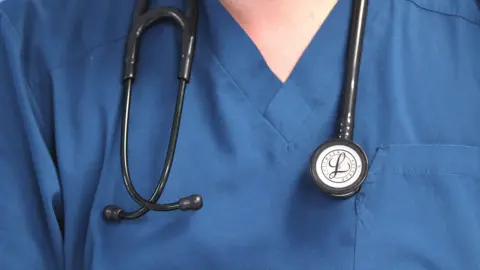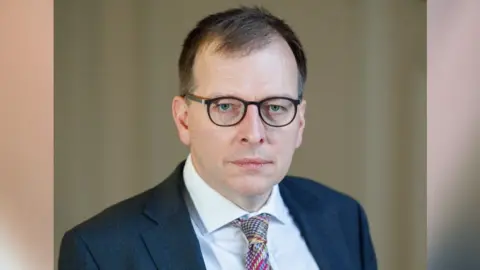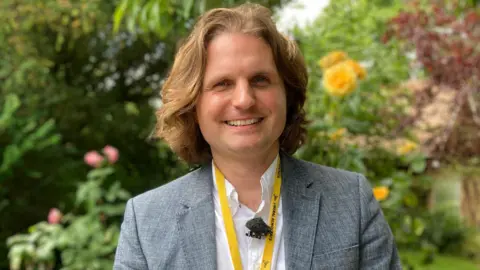Doctor shortage 'is leading to cancer delays'
 PA Media
PA MediaA leading clinical oncologist has said there are not enough doctors to keep up with the number of cancer patients needing scan results, diagnosis and treatment.
Dr Tom Roques, vice president of clinical oncology at the Royal College of Radiologists, who also works at Norwich and Norfolk University Hospital, claimed the NHS was struggling to meet the government's 62-day diagnosis targets in cancer care.
However, Steffan Aquarone, North Norfolk MP, believed another significant challenge was ensuring patients in rural areas could access treatment.
A spokesman for the Department of Health and Social Care said: "We are determined to tackle delays, diagnose cancer earlier and treat it faster."
Dr Roques described a shortage of both radiologists and clinical oncologists, who specialise in cancer treatment.
He said: "People are waiting for scan results or waiting for diagnoses and we're also really short of cancer doctors.
"There are delays further down the line in actually having that treatment because there aren't enough people to provide it."
However, he says the problem was not just a Norfolk issue.
"We are just not able to meet the government-set targets which themselves, are not that ambitious really.
"If you don't have the staff and nurses and the physical space to treat them [patients] then people are not going to be able to have the treatment they deserve."
 Royal College of Radiologists
Royal College of RadiologistsMatt Sample, from Cancer Research UK, said the 62-day government target had been missed annually since 2015, with 74,000 people not beginning treatment within that target last year.
He said: "For people affected by cancer, every single day waiting to get that diagnosis and begin treatment is a worrying and stressful time even when they are seen within targets.
"When those targets are missed, those worries and stresses are just compounded - it can impact their treatment options and ultimately their outcomes.
Liberal Democrat Aquarone agreed, saying "more people die than are necessary".
He remains concerned about the ability of people in rural areas to get cancer care.
"This is entirely about access to treatment," he said.
 Alex Dunlop/BBC
Alex Dunlop/BBCJulie Keeling, nurse director for planned care at Norwich and Norfolk University Hospital, said: "Our latest validated figures show that as of March 2025, 51.8 % of patients receiving first treatment for cancer are treated by day 62, with 48.2 % of patients waiting over 62 days for first cancer treatment. It is encouraging that this is an improvement on previous data.
"We know that we have more to do and are sorry that some patients have had to wait longer than expected to see us following a cancer referral."
The Department of Health and Social Care said: "We are delivering 40,000 more appointments every week, investing £1.5bn in both new surgical hubs and AI scanners, rolling out cutting-edge radiotherapy machines to every region in the country and backing our radiologists and oncologists with above inflation pay rises for the second year in a row."
Follow Norfolk news on BBC Sounds, Facebook, Instagram and X.
